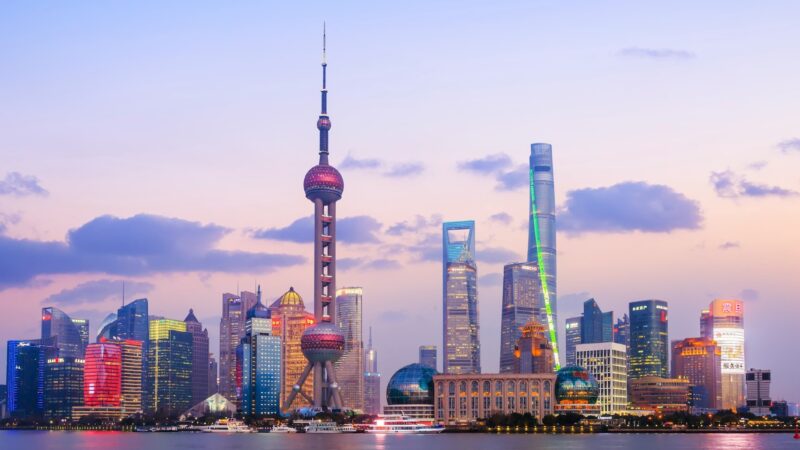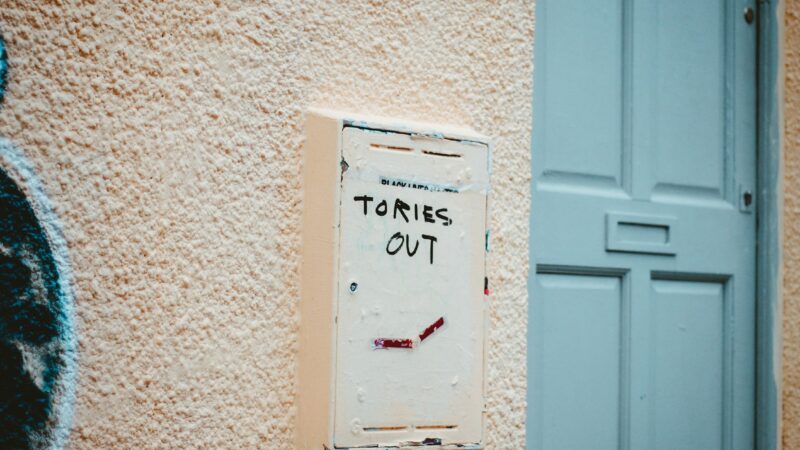The War on Pubs, Part I: Taylor’s Conquest
The war on British pubs is as old as the British pub itself, so much so it can barely be classed as an emerging tendency. The government’s dislike of the pub is a fact of life and measures to undermine its prosperity and role in society are widely disliked but are rarely contextualised in political commentary beyond the Covid pandemic, relatively recent demographic changes, and the last fourteen years of government.
After the end of WW2, Britain seemed to be largely self-sufficient when it came to producing ingredients for beer, something it hadn’t achieved for the best part of a century. Protectionist measures enabled near-autarkic levels of barley production whilst wartime reserves of hops were sold for cheap on the domestic market. Of course, post-war economic pressures made investments more necessary and demanding, whilst imports (especially from Denmark, the Netherlands, and Ireland) were set to become more frequent. Nevertheless, an end to rationing, combined with the implementation of tax cuts in the mid-to-late 50s, one of the few helping hands to pubs since the birth of Modern Britain, which contribute to an increase in beer production and consumption. All things being far from perfect, Britain’s pubs could’ve expected much worse coming out of the most destructive war in history.
Indeed, Britain’s flourishing post-war beer market hadn’t escaped the notice of Edward Plunket Taylor. Famously a breeder of racehorses, coming to be recognised as a major force behind the development of the Canadian horse-racing industry, the tycoon’s family also owned Brading, a brewery in Ottawa founded in 1867. Using the loosely coinciding repeals of prohibition throughout various parts of the US and Canada as a springboard, Taylor merged Brading with another Canadian brewery to form Canadian Breweries in 1930. In pursuit of sheer scale, Taylor consolidated several smaller plants into a handful of larger plants and standardised his line of products, whittling his number of brands down from roughly 100 to six. By 1950, Canadian Breweries controlled 50% of Ontario’s beer market. Having subdued most competition at home, Taylor was well-positioned to turn his focus to foreign conquest.
Being well over 200 years old at this point in history, criticisms of the tie system weren’t new, and they weren’t to vanish in the coming decades, but it did provide an initial barrier to Taylor’s imperial aspirations. As pubs could only sell beer produced by the brewery they were tied to, Taylor realised he’d have to infiltrate Britain’s breweries before he could infiltrate its beer market. Aiming to acquire a 25% stake in every publicly traded brewery in Britain, Taylor sought to gain a foothold in the same way he had come to dominate the Canadian market: through the purchase and merging of smaller and unprofitable breweries. In 1967, Taylor merged Bass Brewery and Charrington United to form Bass Charrington, then the largest brewery in Britain with 19% of the beer market.
Taylor’s aspirations and manifesting success sparked a merging frenzy not seen since the relaxation of beerhouse regulations in the late 19th century and the emergent ‘Beerage’, leading to the rise of ‘The Big Six’, Britain’s six largest brewing companies: Allied Breweries, Bass Charrington, Courage, Scottish and Newcastle, Watney Mann (also known as Grand Metropolitan), and Whitbread.
Whilst Taylor had managed to upend Britain’s brewing market, the tie system continued to incentivise against territorial trespassing between brewers. As such, the mergers occurred largely (albeit far from exclusively) along geographic lines. Allied Breweries and Bass Charrington were more concentrated in the Midlands and the North, both having central breweries in Burton-upon-Trent. Courage originated in Southwark with properties across the South, whilst Watney Mann originated in London with clusters in and around the capital. Fittingly, Scottish and Newcastle were based in Scotland and the Northeast, especially Edinburgh and Newcastle, whilst Whitbread originated in central London, maintaining a sizeable presence in the West End, stretching off into the southwest and much of Wales.
Counterbalancing the instinctual desire to compare The Big Six to feudal barons, their pubs were more clustered than rigidly delineated. Indeed, each brewer was a national entity and desired to expand their control of the overall market. Still, it was the emergence of these large-scale brewers which sparked concerns among small business of a cartelised industry, one in which independent brewers were fighting for an increasingly austere slice of the market.
Initial attempts to curtail the growth of these large brewers lacked momentum. Both with the government and most of the public considering the size of these brewers to be a non-issue. At the very least, it was ‘small beer’ compared to other matters which directly affected pubs and breweries in more gruesome ways. A survey carried out by the Consumers Association showed only 1% of consumers factored in beer prices when it came down to choosing a pub. Simply put, pubs were (and remain to be) more than economic hubs of rational decision-making, but markers of communal identity which provide a sense of place and evoke a sense of loyalty; something to support in a period of inept and lacklustre political leadership.
As for pub owners, many valued The Big Six (and the tie system more generally) as a way of ensuring a steady supply of beer, business, and a livelihood. Far from a barrier to entry, it was seen as the exact opposite, acting as an extension of the quasi-paternalist system which had existed prior to Taylor’s landing on English shores.
Nevertheless, the fears of independent brewers were far from unfounded. By the 1970s, roughly 80% of Britain’s beer supply was controlled by The Big Six, along with roughly 75% of brewer-owned retail, and 85% of ‘loan ties’ – arrangements in which pubs that aren’t directly owned by a Big Six brewer exclusively stock their products and other supplies for discounts and loans. By 1989, the top five best-selling beers had 20% of the total market whilst the top ten had a comfortable 30%.
Also, it became increasingly clear to many pubs that large, cut-throat corporations were not spiritual successors to small, local, historically rooted breweries. The sense of mutual dependency which existed between pubs and the latter was practically non-existent between pubs and the former. Needless to say, an individual pub had more to lose from being untied than any one of The Big Six.
Inflated beer prices were a direct consequence of this arrangement. Between 1979 and 1989, beer prices increased by 15% above the retails’ price index and the tax cuts of the immediate post-war period had long been offset by some of the highest beer duties in Europe. Even if the price of beer was comparatively less important to consumers than the social element of pubs, the financial pressure on customers to buy beer from their local’s tied brewer was far from ideal in a period of stagnating wages and rising inflation.
Pubs which weren’t tied to The Big Six were also routinely shafted by predatory pricing, in which the major brewers would temporarily lower their prices to undercut and destroy independent establishments before increasing their prices to consolidate their financial dominance in particular area. This practice was especially harmful to rural pubs, which were more likely to be independent and less economically secure than urban pubs, courtesy of a continuing trend of rural depopulation.
However, whilst the cost of beer wasn’t a pivotal concern, the wavering quality of beer was a growing source of frustration for pubgoers. Practically impervious to market forces, The Big Six were able to push less-than-appealing products onto the consumer through advertising backed by a steady and plentiful flow of cash. Courtesy of organisations like CAMRA (Campaign for Real Ale), Watney’s Red Barrel became shorthand for the extortionately priced yet wholly unremarkable (if not always terrible) concoctions one could expect from companies perceived as too big to care about the quality of their products.
Overall, the relationship between breweries and pubs was less comparable to ‘aristocratic’ noblesse oblige and more akin to the terror of mobsters and strongmen, whose promise of security wore thin as they threatened pub owners with financial ruin should they defy their heavy-handed demands. In Hobbesian terms, they were demanding obedience from people they were increasingly disinterested in protecting. This state of affairs created a seismic reaction which would change the trajectory of Britain’s pub and brewing industry, albeit not necessarily for the better; a reaction not from the market, but from the state.










A Brief History of US Student Politics
‘Hey, hey LBJ, how many kids did you kill today?’
These chants outside of the White House haunted Lyndon B. Johnson throughout his presidency. He would sit in the Oval Office with his head in his hands as the chants wafted through the walls. When his son-in-law Charles Robb sent in a tape from Vietnam, Johnson buckled against the table and looked as though he was in tears. For the loud Southern Jackson, who took great pleasure in towering over and intimidating others, this seemed like quite a big deal.
This is not about Johnson, however. This is about the students who protested him and the Vietnam War. This is about the students who protest now and any time.
An American Education
Harvard University was founded in 1636 and is classed by many as the oldest institute of higher education in the United States. Throughout history, the Ivy League colleges (Harvard, Yale, University of Pennsylvania, Princeton, Columbia, Brown, Dartmouth and Cornell) have been considered the most elite, though others have made quite the showing. Between them, the Ivy League colleges have educated fifteen US presidents. They’ve also educated many Supreme Court Justices, Governors and members of Congress.
Throughout early American history, the Ivy League and other elite colleges were almost exclusively for white, wealthy men. Colleges for women did exist, such as the female equivalent of the Ivies, the Seven Sisters, though they came far later. Colleges for African-Americans also came later, such as Howard and Tuskegee.
Cornell began to accept women in 1870, but it took until 1983 for all of them to admit women, with Columbia being the last.
Minority men were able to attend earlier and more frequently, with Yale being the last to accept black students in 1964.
Despite more diversity in terms of the student body, Ivy League colleges see students of the wealthy 1% overrepresented. One in six Ivy students have parents from the top 1%, and they are 34% more likely to be accepted than students with the same scores but from less wealthy backgrounds. The children of these parents are also more than twice as likely to attend elite universities- the Ivies, Stanford, MIT, Duke and Chicago.
The Times They Are A-Changin’
Whilst protests and activism were not unknown prior, the 1960s saw an explosion in it.
The decade was one of great social change, perhaps the greatest since the 1860s. Firstly, there was more of a focus on youth. TV, radio and movies began to cater to teenagers. Bands like the wholesome Beach Boys and sassy Beatles saw teenage screaming along. As incomes expanded, college enrollment doubled between 1945 and 1960, doubling once again by 1970.
There was also less social and cultural hegemony than before, something that Richard Nixon and his Silent Majority sought to exploit. The Civil Rights movement was at an apex as students sat at segregated café counters and took integrated buses to register African-American voters in the Deep South. Second-wave feminism saw women demand access to birth control, abortion and equality in the workplace. As students moved away from their generally conservative homes, many became embroiled in a more progressive political atmosphere.
Perhaps most impactful in terms of lives was the Vietnam War. Action in the Asian nation had significantly escalated, particularly after the Gulf of Tonkin incident in 1964.
Students in particular were opposed to the draft. College students could receive deferments, but they were in the target conscription demographic of being young and healthy and unmarried, though the marriage deferment ended in summer 1965. One of the most notable forms of protests saw students burning their draft cards.
They were also active in the protest movement as a whole. College campuses became hotbeds of political activity. Students also joined protests and demonstrations.
There were varied reasons as to why students in particular were opposed to the war. Some echoed the popular sentiment of many that it was war thousands of miles away that did not have anything to do with America. Others believed that American soldiers were killing innocent civilians. Some thought that the money would be better spent elsewhere or that war in general was wrong.
One college that became a centre of counterculture politics was UC Berkeley. The California university became a hub of activism and protests regarding Civil Rights, free speech and Vietnam.
Most of the decade saw passionate but peaceful protests in the area, but this changed. In April 1969, students at Berkeley set up an informal encampment in People’s Park, scuppering a plan to turn it into a public space. On the 15th May 1969, police arrived to turf the squatters out. This, combined with a nearby college protest, saw around 6,000 people turn out at the park. The police eventually opened fire, killing San Jose resident James Rector as he watched from the roof. Many others were injured; one man was blinded. California Governor Ronald Reagan called in the California National Guard.
There had been a notable protest at New York’s Columbia University a year before. Black student protestors had asked white protestors to protest separately, which they did, segregating it on racial lines. Some of the students occupied the administrative Hamilton Hall, holding Acting Dean Henry S. Coleman hostage.
In another protest that year, students at Morehouse in Atlanta held the board of trustees. One of those students was a young Samuel L. Jackson.
Sixties Assassinations
Adding to the students’ cynicism were the assassinations of four famous men, all of whom were generally admired by students.
The first was John F. Kennedy in November 1963. Kennedy had been a proponent of college education and had been a point of fascination for young people, mainly due to his relative youth compared to other politicians.
The second was Malcolm X, the firebrand minister for the Nation of Islam and advocate of civil rights. He was slain in February 1965.
The third was Martin Luther King Jr, the well-known minister who advocated for civil rights via peaceful means. He was killed in April 1968.
The fourth and final one was Robert Kennedy in June 1968. He had entered the Democratic race for president as an anti-war and liberal alternative to unpopular incumbent Lyndon B. Johnson.
Death At Kent State
One of the most tragic events of the student protest movement came in May 1970.
The Sixties was over and new president Richard Nixon had promised law and order. Meanwhile, America was expanding military operations in Vietnam by entering neighbouring Cambodia. This caused immediate controversy in the anti-war movement. Several hundred students at Kent State in Ohio were protesting this. Residents and police officers had been concerned about potential repercussions in the community, and the Ohio National Guard was called.
The National Guard attempted to disperse the crowd through tear gas and other means, but this failed. Protestors began to throw rocks and other projectiles at them before being herded away. Near a hill, some of the officers started to open fire. Four students- two men and two women- were killed. Nine others were wounded, one of whom was permanently paralysed.
Images of the event, including the famous picture of a horrified teenager standing over one of the bodies, caused even more riots and protests across the nation. 100,000 people marched on Washington a few days later, leading to Richard Nixon famously talking to protestors in the middle of the night at the Lincoln Memorial.
Post-Sixties
Whilst the chaos of the 1960s gave way to a relatively more peaceful 20th century, activism and protests still remained. College Democrats and College Republicans have both been popular hubs for the partisan-minded students. Politicians regularly attend speeches and rallies, especially when they’re supported by the students.
As a rule, colleges tend to be on the left of the spectrum, in both faculty and students. Exceptions to this tend to be religious institutions like Bob Jones and Liberty University.
Issues that have arisen include the Iraq War, climate change, school shootings, race, gender, sexual assault and rape and military engagement in general.
The Current Protests
On the 7th October 2023, Israel was surprised by an attack by Hamas. People were murdered, missiles were fired and civilians taken hostage. In response, Israel had gone all out on Hamas. As a result, there have been numerous deaths and injuries in Palestine. Many people have been made homeless or have needed to evacuate from their homes. Some have flooded into neighbouring Egypt. Neither Palestine or Israel are safe.
Sympathy for the deaths of innocents have been widespread, but there is a huge difference in opinion regarding Israel. Protests have happened in major cities across the world, with the pro-Palestine side occupying most of that space. London for example has seen weekly protests since October.
The issue has become a massive one in America. Historically, the American government has been a strong supporter of Israel. Joe Biden has given assistance to Israel, but seems to want incumbent Israeli PM Benjamin Netanyahu out. Internally, there is debate amongst the legislative branch. Pro-Palestine and anti-interventionist politicians have come together to stop aid to Israel. Others wish to help it more.
It’s also been dynamite for college campuses. Coast to coast, north to south, university students have been protesting non-stop since October. The Ivy League colleges have been the centre of the protests, but other elite and notable colleges such as Stanford, Berkeley, Northeastern, NYU, Ohio State, and Emerson have seen student activism.
Students have been calling for an immediate ceasefire in the area. Regarding their own colleges, they ask for the institutions to break all ties to Israel, especially regarding financial gifts.
The protests themselves have been controversial. The shouting of ‘from the river to the sea’ is seen as a call to action against Jews, as well as the calling of a global intifada. Flickers of anti-semitism have allegedly been seen in these protests, despite the bulk of participants proclaiming they oppose Zionism, not Jews. Some Jewish students have participated in the protests, whilst others feel unsafe. Classes have been called off and students have been forced to study online.
Encampments have been put up on several campuses. Some have been cleared by police whilst others remain. These encampments are made up of tents, donated food and other communal activities, all of which are subject to rules. Whilst the protests remain mainly about Israel and Palestine, they tend to bend towards anti-capitalism and progressive ideology.
New York’s Columbia University has been the establishment most in the news. On the 17th April, a number of Columbia students started an encampment. Whilst the encampment was torn down by police the next day, it was rebuilt and protests continue. Students report difficulty getting to class. Arrests and suspensions have also been made.
Student Kyhmani James became the subject of media attention following comments regarding the murder of Zionists. He filmed a video of himself talking to the administration in an attempt to get his views across. Unfortunately for Mr. James, he has been kicked out of Columbia.
The Response
America’s 1st Amendment is very strict on the freedom of speech and assembly. That being said, law enforcement and university officials are more than a little tired of it. Students have been arrested, suspended and even expelled. Three college presidents have sat before Congress- Mary Magill of UPenn, Sally Kornbluth of MIT and Claudia Gay of Harvard. Magill resigned in December 2023, and Gay followed in January 2024 after a plagiarism scandal.
Some presidents have been tough. The University of Florida sent out a very clear letter to protestors telling them which behaviour was appropriate and what would get them kicked out. Florida State turned on the sprinklers. Northeastern University got the police to clear the encampment, saying that the use of ‘Kill the Jews’ crossed the line. Florida Governor Ron DeSantis promised to expel any protestors who joined mobs. Even Columbia, the home of the most infamous protests, allowed the police in to tear down the encampment.
It doesn’t look like this is going to go away anytime soon. What some call a win for free speech is what others call going ‘too far’. As parents look away from the Ivy League to less elite but still reputable universities, one wonders if it’s a case of rich kids with too much time on their hands and no problems of their own. Is it that or a genuine example of solidarity with Palestine? Whatever the case, America’s campuses remain on metaphorical fire.
Photo Credit.